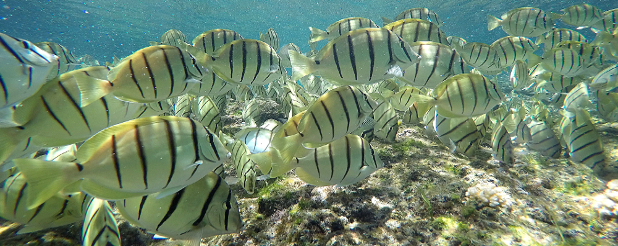

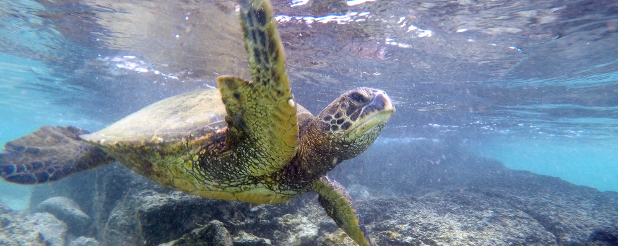
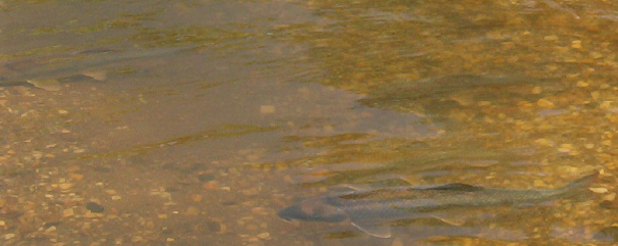
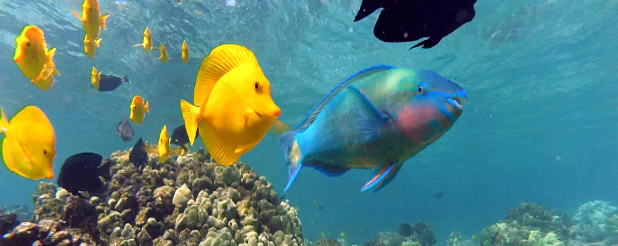

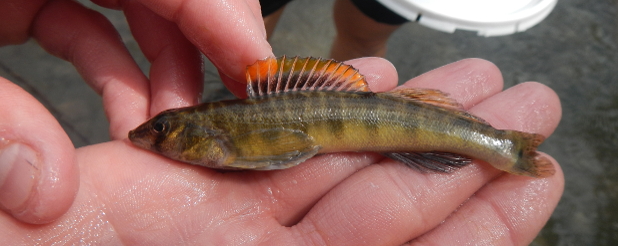


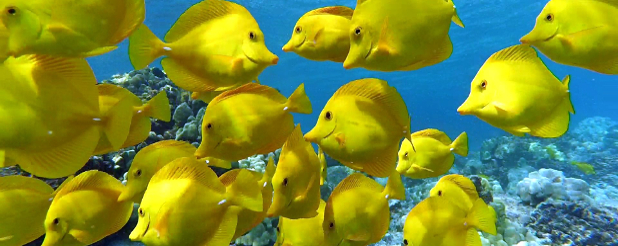

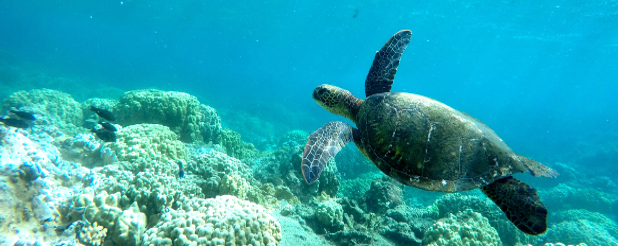
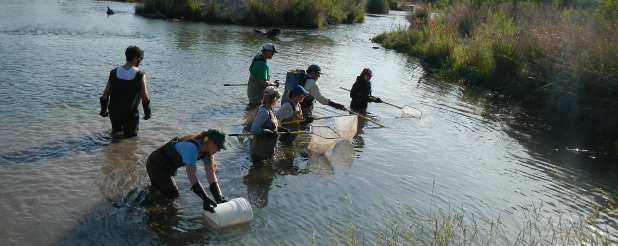
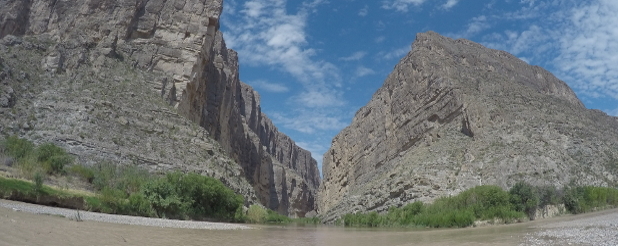

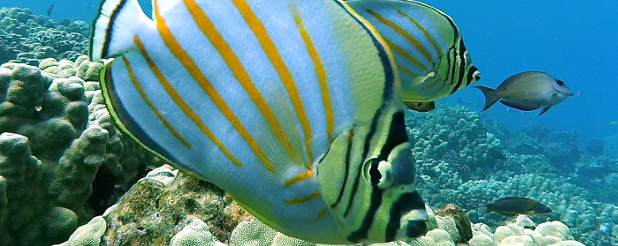
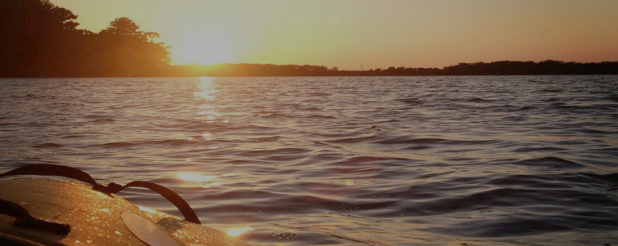
 |
"Why study fishes and fisheries?"You’d likely get a different answer to that question from each scientist you asked, so I can only give my answer. I have always had a strange fascination with anything underwater and that got me really interested in fishes at a young age. A combination of fishing with my dad and grandpa, visiting the Shedd Aquarium in Chicago, and keeping aquariums at home pretty much sealed it for me. However, it was in college that I found that the really interesting questions were being explored in fisheries management and conservation. The issues surrounding fisheries management and conservation are complex, multi-faceted, and always in flux. They are a microcosm of the ecological, socio-economic, and political issues facing human society on a global scale, but they also have consequences to individuals and communities at more local scales. Solving them requires building collaborations and partnerships with a diverse group of people, agencies, and institutions. So for me, studying fish and fisheries is a combination of my passions intersecting with a challenging and personally rewarding field of study. |
 |
"What are you looking for in graduate students?"The job of a scientist, fisheries or otherwise, is nothing like the way it is portrayed on TV or in movies. Developing testable hypothesis and the methods to rigorously assess them is incredibly exciting, but what gets glossed over is the constant failure you will experience along the way. Conducting fieldwork, be it in a small stream or the open sea, is a voyage of adventure and discovery to be sure. However, it will also be an incredibly humbling experience as you come to appreciate of the amount of work and willpower it takes to collect and analyze the data necessary to push the field ever so slightly forward. It is also humbling to recognize the sheer number of things, many seemingly insignificant (until they’re not), that can go haywire and sabotage the entire effort. Working in the lab requires the patience, discipline, and attention to detail to ensure that every sample is processed and analyzed the same way, i.e., the right way, each and every time. There will be so many days when it will feel like the entire universe is aligned against you to protect its secrets, particularly when you sit down to start analyzing your data. Communicating your findings to your peers will require countless revisions, rewrites, and hours tediously agonizing over each and every word. The hours are long, but to be honest and fair, they only rarely feel like work. The intellectual payoffs can be amazingly rewarding, and usually offset the fact that the financial ones are often significantly less so. So you might be asking, what does this have to do with what I am looking for in a prospective graduate student? I am looking for people who read the above paragraph and say to themselves, “Yes, please. Sign me up.” |
 |
"What are your expectations for students?"While the list of specific expectations could go on and on, there are two things specifically that I expect from my students that I want to highlight. The first thing I expect is your best effort. Let me elaborate on that for a moment. I realize coming in that you are not going to know everything, e.g., how to write a scientific paper, how to run a statistical analysis, etc. I mean it is right there in your title that you are a student, so it is understood that there will be miscues, mistakes, and minor catastrophes along the way. My expectation is that I will get your absolute best effort and total commitment on the student part. I expect that you will learn from those miscues, mistakes, and minor catastrophes. I expect that you will be open to constructive criticism, suggestions, and input from me, your peers, and others and use it to develop into a great scientist. The second expectation is that you realize that you are part of a team. This is not to say that we put aside pursuits for individual accomplishments and recognition, just that we all benefit from ensuring an open, collaborative atmosphere in the lab. We are a joint venture, sharing our successes and our failures. We are each other’s most reliable research assistants, steadfast collaborators, attentive sounding boards, and loudest cheering sections. You do not have to be friends, you just need to be an active participant and part of the team. |
 |
"How do I pick a graduate advisor?"It should be obvious, but you should be just as selective when deciding about your graduate advisor as your advisor is going to be when deciding about you. For example, you should understand the type of work that your prospective advisor does, but it goes much deeper than simply the types of research questions he/she focuses on. Some of the questions you should consider include: Is the research basic or applied in nature...or some combination thereof? How does your potential advisor interact with students? How accessible and approachable is he/she? How does he/she manage the various personalities working in their lab? What kind of support is available for me? Will my potential advisor support my professional development? What does his/her current and former students have to say about their experiences? How do current students/recent graduates feel about their preparedness for the job market when they finish? What kind of jobs do recent graduates find themselves in? What is a USGS Cooperative Research Unit and what does it mean for me? This website was designed to help you answer these questions (and certainly formulate others) and I would encourage you to explore it. |
 |
"How do I go about applying for graduate school?"Graduate students can join my lab in the Hawaii Cooperative Fishery Research Unit through a number of ways depending on whether they are pursuing their M.S. degree or their doctorate and whether they are supported by a research assistantship on an extramurally-funded project or through a teaching assistantship or other financial support, such as scholarships. Graduate Research Assistant, M.S.When I secure extramural funding for a student, I will generally post an advertisement at several online job boards, such as the American Fisheries Society job board and various listservs including internal listservs at UH-Hilo and UH-Manoa. I should point out that many times, I never post an ad for these positions as I was already in contact with a prospective student upon receiving the funding (or in some cases wrote the proposal with that prospective student in mind). After the closing date on the ad, I will conduct interviews and select a candidate that I will strongly encourage you to apply to the Tropical Conservation Biology and Environmental Sciences program at UH-Hilo. Assuming that you are accepted into the program, then you are good to go. If I do not feel that you will be a good fit for the position, I will not encourage you to apply to the program.Graduate Teaching Assistant/other means of support, M.S.If we decide that there is a mutual interest in having you join the lab, I will encourage you to apply to the Tropical Conservation Biology and Environmental Sciences program at UH-Hilo and will also support your application for a teaching assistantship position. However there a limited number of teaching assistantships available, so there is no guarantee that you will be provided an assistantship. Be sure that you have all of your application materials in to the program by the appropriate deadlines and keep me informed of your submissions. If you are awarded an assistantship, congratulations and welcome aboard. If not, then we can discuss other options that you might be able to pursue, such as applying for extramural scholarships and fellowships.Graduate Research Assistant, Ph.D.UH-Hilo does not have a doctoral program, so Ph.D. students studying at my lab and the Unit are enrolled in the Marine Biology Graduate Program at UH-Manoa in Honolulu. Doctoral students will be required to be in residence at UH-Manoa for at least a full academic year. After that, students will relocate to UH-Hilo (or their field sites) and complete their course requirements through distance learning. Otherwise, the process is similar to the process described above for M.S. students supported with a graduate research assistantship.Graduate Teaching Assistant/other means of support, Ph.D.Prospective doctoral students wanting to join the lab without having a graduate research assistantship in place will follow a procedure similar to that described above for M.S. students on teaching assistantships. I would encourage students following this route to contact me early as there will be some logistical challenges that will need to be solved to ensure your success.In general, I do not advise M.S. students in the Marine Biology Graduate Program at UH-Manoa. The residency and course requirements make it difficult to split time across two islands during a two-year degree program. |
 |
"What if I am an undergrad looking for research experience?"While my primary mission through the Hawaii Cooperative Fishery Research Unit is graduate education, I usually have openings for undergraduate students interested in pursuing research through a senior thesis, the Marine Option Program, or the PIPES summer internship program. In addition, there are often opportunities to assist ongoing research projects and sometimes even paid positions available. Please e-mail me HERE or drop by my office in MSB-107. |
A few things to consider about HawaiiHawaii is a great place to live and work, I am not going to try to convince you otherwise. The weather is great. The scenery is beautiful. The people are wonderful. There are coral reefs and all those amazing fishes right there, like just down the street (I would probably get more writing done if they were farther away). However, it also is a very expensive place to live--particularly on a graduate assistantship. It is probably a very long way from home, family, and friends. Hawaii has a unique culture that likely will be very different from your previous experiences (note that this is not a bad thing in the slightest, but it can be a challenge at first). Living here can be an isolating experience until you integrate into the local community, though being a part of the university community helps considerably in this regard. I am not trying to dissuade you from considering studying fishes and fisheries here, but I am saying that living in Hawaii is not necessarily for everyone and you should ask yourself some tough questions upfront to be sure this is the right place for you. |